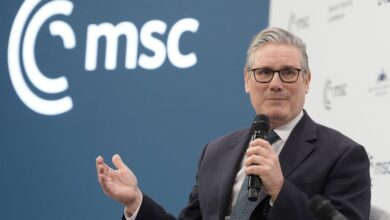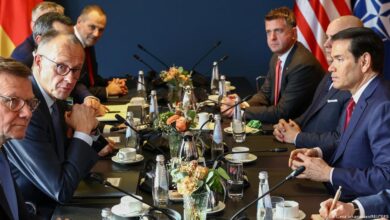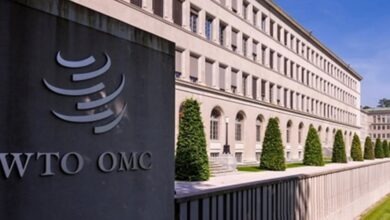Trump’s return spurs Denmark’s embrace of the EU amid shifting global alliances
Outlining Denmark’s vision for its six-month EU presidency, Frederiksen stressed the need for unity and strength: “Now more than ever, Europe needs to step up and stand together. We have to build an even stronger Europe — a more secure Europe — where we are able to protect our democracies,” she declared.

As Denmark assumes the rotating presidency of the European Union, public support for the EU among Danes has reached its highest level in two decades — an unprecedented shift that observers partly attribute to the re-election of US President Donald Trump.
A March survey by Danish newspaper Berlingske revealed that 41% of Danes now view the United States as a threat. Furthermore, 92% of respondents agreed or mostly agreed that Denmark should depend more on the European Union than the United States for its security.
These findings come amid growing friction between Washington and Copenhagen, particularly over Greenland, an autonomous territory of Denmark. Trump has repeatedly expressed a desire for the U.S. to acquire Greenland, while high-profile visits and remarks by Vice President JD Vance and Trump family members have stirred further tensions.
During a March visit to the U.S. military’s Pituffik Space Base in Greenland, Vice President Vance criticized Denmark’s Arctic defense contributions. In response, Danish Prime Minister Mette Frederiksen defended Denmark’s record, calling the country “a good and strong ally.”
Lykke Friis, a leading Danish political analyst and former minister, told CNN that Denmark has faced a “triple shock”: the war in Ukraine, Brexit, and the return of Trump. She said the latter had the most profound effect, prompting a shift in Danish identity and alignment.
“We are looking at a different Denmark today,” Friis noted.
Marie Bjerre, Denmark’s Minister for European Affairs, echoed this sentiment in an interview with CNN, suggesting that the second Trump presidency has led Denmark to reevaluate its stance toward both the EU and the U.S., though she refrained from naming Trump directly.
This shift is especially significant given Denmark’s historically cautious approach to European integration. According to Friis, Denmark has long maintained a pragmatic, transactional relationship with Brussels and has opted out of several EU policies, including the euro currency. Concerns about EU overreach, particularly in labor market regulation, have made many Danes wary of deeper integration.
“We do things differently from other European nations,” said Bjerre.
Previously, fears in Denmark centered on the EU becoming overly dominant. Now, as Friis explained, the concern is the opposite: that the EU may be too weak to confront external threats, including Russian President Vladimir Putin and President Trump.
In a notable policy pivot, Prime Minister Frederiksen announced in June that Denmark would leave the “Frugal Four”—a bloc of fiscally conservative EU countries—emphasizing that “the most important thing is to rearm Europe.”
Outlining Denmark’s vision for its six-month EU presidency, Frederiksen stressed the need for unity and strength: “Now more than ever, Europe needs to step up and stand together. We have to build an even stronger Europe—a more secure Europe—where we are able to protect our democracies,” she declared.












